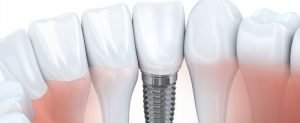
After undergoing dental implant surgery, proper post-operative care is crucial for successful healing and long-term implant success. One essential aspect of post-implant care is selecting the right foods to eat during the recovery period.
The foods you choose can greatly impact your healing process, minimize discomfort, and support the integration of the implants with your jawbone.
In this blog post, we will explore the foods that are recommended after getting dental implants. From soft and nutrient-rich options to avoiding certain foods that can hinder healing, we will provide you with valuable insights to help you make informed dietary choices and ensure a smooth and successful recovery after your dental implant procedure. Contact your dental professional today!
Foods To Eat Immediately After Getting Dental Implants
After getting dental implants, it’s important to follow a soft diet for a few days to allow proper healing and minimize discomfort. Here are some recommended foods to eat immediately after getting dental implants:
- Soups and Broths: Opt for smooth and pureed soups like tomato soup, butternut squash soup, or chicken broth. Ensure they are lukewarm or cool to avoid irritating the surgical site.
- Smoothies: Prepare nutritious smoothies with soft ingredients such as yogurt, milk, soft fruits (banana, mango, berries), and vegetables. Avoid using a straw to prevent any suction that can dislodge the blood clot.
- Mashed Potatoes: Make creamy mashed potatoes without any large chunks. They are soft and easy to eat while providing some calories and nutrients.
- Scrambled Eggs: Cook scrambled eggs until they are soft and tender. You can add some cheese or finely chopped vegetables for extra flavor and nutrition.
- Yogurt: Choose plain or flavored yogurt that doesn’t contain any large fruit chunks. Yogurt is soft, cool, and gentle on the surgical site. It also provides probiotics for a healthy mouth.
- Steamed Vegetables: Steam vegetables like carrots, broccoli, or cauliflower until they are soft and easily mashed with a fork. Avoid crunchy or raw vegetables that may be difficult to chew.
- Soft Fruits: Opt for soft fruits like bananas, avocados, peaches, or melons. Cut them into small, bite-sized pieces to make them easier to eat.
- Cooked Pasta or Rice: Cook pasta or rice until they are tender and easy to chew. Avoid sticky or chewy varieties and opt for softer options like macaroni or white rice.
- Protein Smoothies: If your dentist allows it, you can include protein powder in your smoothies to promote healing and provide essential nutrients. Consult your dentist or oral surgeon for specific recommendations.
Foods To Eat After A Few Weeks of Getting Dental Implants
In the weeks following dental implant surgery, you can gradually introduce more solid foods into your diet as the healing progresses. However, it’s still important to be cautious and choose foods that are gentle on your implants and promote healing. Here are some food recommendations for the weeks after getting dental implants:
- Soft Proteins: Incorporate soft protein sources such as eggs, tofu, cooked fish, and well-cooked poultry. Avoid tough meats or foods that require excessive chewing.
- Cooked Vegetables: Continue to consume vegetables, but ensure they are cooked until they are tender. Steamed or roasted vegetables like carrots, zucchini, and green beans can be a good choice.
- Soft Fruits: Enjoy soft fruits like bananas, avocados, and ripe melons. Cut them into small, manageable pieces to make chewing easier.
- Soft Grains: Introduce soft grains such as cooked quinoa, couscous, or well-cooked rice. These provide energy and nutrients while being gentle on your implants.
- Dairy Products: Include soft dairy products like yogurt, cottage cheese, and soft cheeses. These are excellent sources of protein and calcium, which aid in healing.
- Soups and Stews: Continue to consume soups and stews, but you can gradually include small, tender chunks of vegetables and meats if it feels comfortable to chew.
- Smoothies and Milkshakes: Continue enjoying nutrient-rich smoothies and milkshakes, but you can gradually reduce the pureed consistency as your healing progresses.
- Soft Bread and Pasta: Choose softer bread like whole wheat bread, tortillas, or wraps. Cook pasta until it’s al dente to make it easier to chew.
- Nut butters: Smooth nut butters like peanut butter or almond butter can be a good source of protein and healthy fats. Spread them on soft bread or mix them into smoothies.
- Soft, Moist Desserts: Opt for soft desserts like pudding, mousse, or gelatin. Avoid hard or crunchy foods that may put pressure on your implants.
Foods to Eat After Getting Dental Implants
After getting dental implants, it’s essential to avoid certain foods that can potentially interfere with the healing process or put excessive pressure on the implant area. Here are some foods to avoid:
- Hard and Crunchy Foods: Stay away from hard and crunchy foods that require vigorous chewing. Examples include nuts, popcorn, chips, hard candies, and ice. These can potentially damage the implant or irritate the surgical site.
- Sticky Foods: Avoid sticky or chewy foods that can get stuck around the implant or in between teeth. This includes chewing gum, caramels, taffy, and sticky candies. They can disrupt the healing process and increase the risk of infection.
- Tough Meats: Steer clear of tough or chewy meats, such as steak or jerky, which require significant force to chew. Opt for softer protein sources like cooked fish, poultry, or tofu instead.
- Spicy and Acidic Foods: Spicy foods and acidic foods can cause irritation or discomfort in the mouth. Avoid hot sauces, chili peppers, citrus fruits, and acidic juices until the surgical area has healed completely.
- Carbonated and Alcoholic Beverages: Carbonated drinks like soda and alcoholic beverages can introduce carbonation and alcohol into the healing area, potentially causing discomfort or interfering with the healing process. Stick to non-carbonated and non-alcoholic beverages during the initial healing period.

